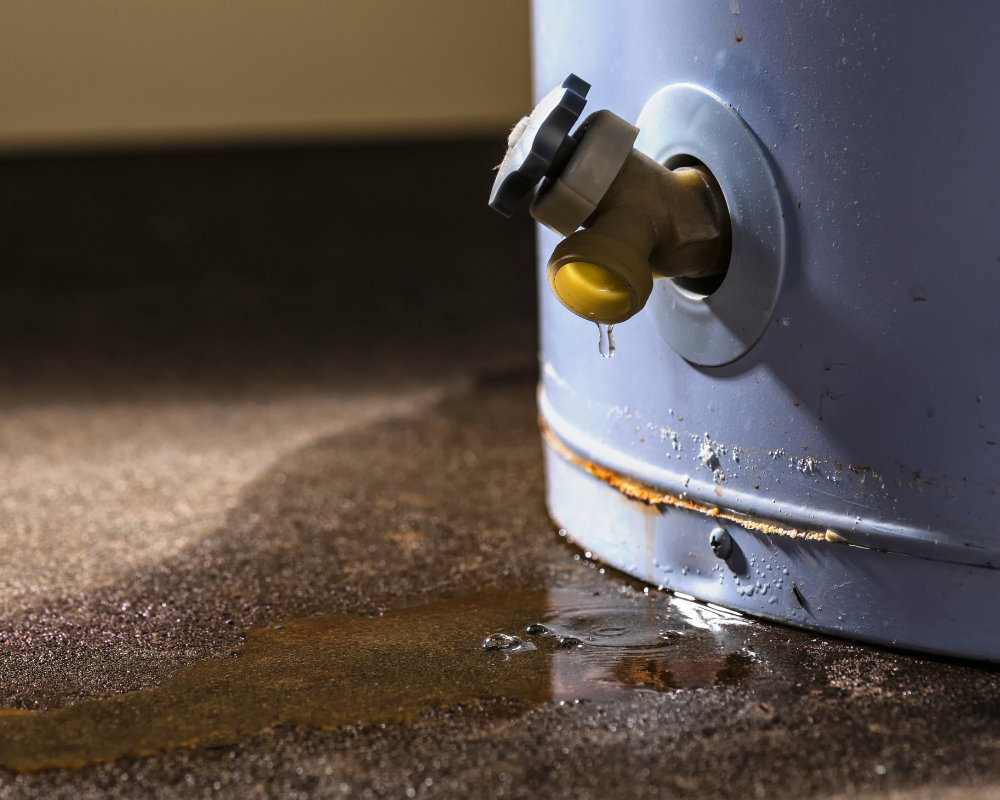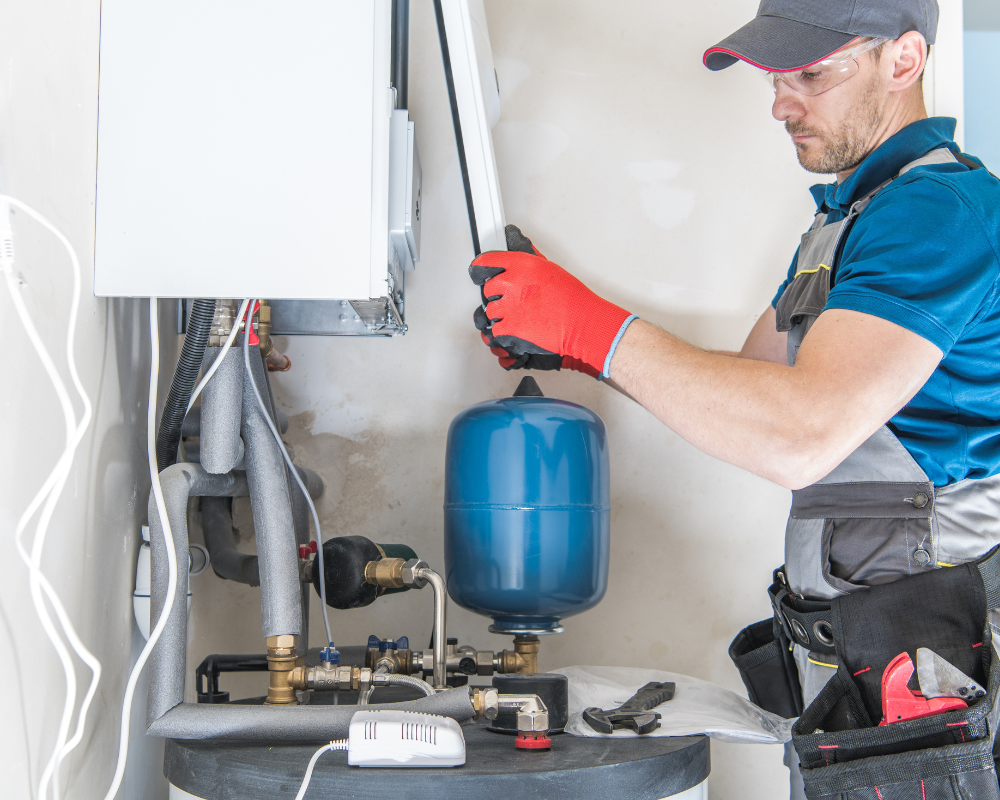A leaking water heater can go from a small nuisance to a major plumbing emergency fast. If you’ve noticed puddles near your unit or dripping water from your tank, don’t ignore the signs. Knowing whether to repair or replace a leaking water heater starts with identifying the source of the leak and understanding what’s fixable—and what’s not.
Common Signs Your Water Heater Is Leaking

Before jumping to conclusions, it’s important to figure out where the water is coming from. In many cases, what appears to be a leak could actually be condensation. Ruling out condensation should be your first step, especially in humid environments or with older electric water heater models.
However, if you see leaking water around the base or connections, it may be time for action. Common signs include:
- Water leaking from the bottom of the water tank
- Moisture around the relief valve
- Corrosion or rust at pipe connections
- Pools of water under the heater
- Unusual noises or performance drops
What to Do First: Safety Measures
If your heater is leaking, always take immediate steps to prevent water damage:
- Shut off the power:
- For an electric water heater, switch off the breaker.
- For gas models, turn the gas valve to “off.”
- Shut off the water supply valve to prevent more water from entering the tank.
- Drain the tank if needed to reduce flooding and allow for inspection.
Once these steps are complete, inspect the unit—or call a professional plumber like Massie Creek Plumbing.
Repairable Issues
Some leaking problems are relatively minor and can be repaired. These include:
- Loose connections: Inlet or outlet fittings may just need tightening.
- Relief valve problems: The temperature and pressure relief valve (T&P valve) may be faulty or clogged and can often be replaced.
- Anode rod corrosion: A deteriorated anode rod can lead to rust and leaks but replacing it can prolong the life of the tank.
- Drain valve leaks: If the valve at the bottom of your heater is dripping, it might need to be tightened or swapped out.
In these cases, a quick repair can get your system back in working order without the cost of replacement.
When to Replace Your Water Heater

Not all leaks are fixable—especially when they stem from internal damage to the water tank. If water is leaking from the bottom of the tank itself, that usually means the tank has corroded beyond repair. You’ll likely need a full replacement if:
- The tank is over 8–12 years old
- You see rust-colored water
- The leak is coming directly from the tank
- You’ve already replaced multiple components before
An old, leaking unit could cost you more in water damage than the cost of a new, energy-efficient model.
Preventing Future Leaks
Regular maintenance can extend the life of your water heater and prevent leaks. Key tips include:
- Inspect the anode rod every 2–3 years
- Test the relief valve annually
- Flush your tank regularly to remove sediment
- Ensure all connections are tight
- Schedule professional inspections with a trusted plumber
Whether your heater is leaking slightly or you’re facing a serious water damage risk, our expert technicians can help. We’ll inspect your system, recommend the best course of action, and ensure your water heater is installed correctly—so you can get back to hot showers and peace of mind.
Contact Massie Creek Plumbing today to schedule your water heater repair or replacement service.
